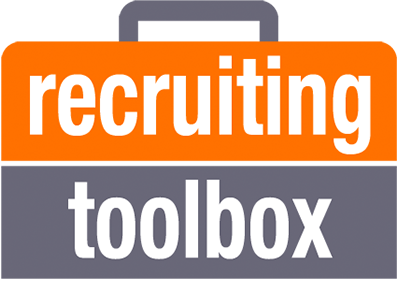Recruiting Toolbox Blog
The Virtual Interviewing Age: Why Great Interviewing Skills are More Essential Than Ever

It’s Spring 2020, and we are in the midst of an unprecedented pandemic that has swept the world impacting everything that we do day to day, including the job interview. The good news is that interviewing and hiring hasn’t completely stopped. There are in fact still millions of job openings out there (2.8 Million in the US according to Indeed.com – 4/2/2020), and many of these employers have quickly moved to virtual interviewing platforms ranging from Zoom and Skype to HireVue to phone calls to keep their hiring engines revving.
In-person interviewing can be challenging enough for inexperienced and ineffective interviewers . Virtual interviewing for inexperienced and ineffective interviewers can be even more challenging and intimidating. It can the more difficult to make a connection with the candidate, context can easily be lost, facilitating a conversation could be just that much harder.
Inexperienced or ineffective interviewers are more likely to fall into a set of ‘yes or no’ questions, or canned ‘strength/weaknesses’ questions that don’t really provide enough (if any) evidence about whether someone has the critical behaviors and motivations to be successful in a particular job and workplace. And when they don’t gather enough evidence, they make assumptions. One big assumption I see inexperienced interviewers make is that great interviewees who are naturally chatty and open on a video or voice call are assumed to be great performers, but a great interviewee doesn’t always equal a great hire, right? All of this could bring into question just how effective virtual interviews can be fore some, which is a valid concern.
Candidates can easily struggle here too if they are not comfortable or experienced in an interviewing situation, a struggle which can be exacerbated when carrying on an interview conversation via video or phone.
Effective interviewers on the other hand are skilled at facilitating a conversation, one that solicits great detail and context, one that goes beyond what someone knows or can do into how and why they get work done. They are focused on gathering objective evidence related to critical, must-have criteria, and are able to make confident quality selection decisions quickly.
So, yes, it’s more essential than ever that hiring managers and interviewers be educated as to how they can optimize their virtual interviews. After all, companies are entrusting them to make great hiring decisions even . Here are three tips that can help hiring managers/interviewers succeed with virtual interviewing starting tomorrow:
- Use empathy and set expectations: Chances are that some of the candidates that you’ll be interviewing have recently been laid-off or furloughed. If we know that’s the case, we can express empathy right up front. If that’s not the case or we don’t know yet, we can simply ask why they are interested in our job/company. We should also set an expectation here that even though we’ll be asking some questions, that we hope that this will be very conversational, that we may be asking a number of follow up questions, and we hope to hear their questions as well. A great interview should be a 2-way open conversation, set the tone up front that this will be the case.
- Be focused, prepared, and present: If we have 30 minutes for this interview, we probably only have time for 3-4 big questions that can solicit evidence of skills and behaviors, that can be conversational to enable us to gain a lot of detail and context. Behavioral questions (“tell me about a time…”) are great not only to get evidence of behaviors, but of skills and motivation as well. Ask questions that are highly relevant to key aspects of the job. We can also ask ‘situational’ questions where we can explore their knowledge on relevant topics, ask them to solve a real and relevant problem one they’ll face on the job, etc. We should be probing conversationally here too, seeking to understand not only what they know/can do, but also how they would do it and how they might adapt if they had to do something differently than they are used to. We need to be able to go deeper in the moment when a candidate may not be providing enough detail or context. If there are multiple people interviewing the candidate, make sure that each interviewer has different focus areas and are asking different questions.
- Discuss next steps and make decisions fast: There’s a lot of anxiety out there and the nature of how business is being conducted is changing rapidly, every day. The best talent won’t last on the market long, even in these current conditions. At the end of the interview, make sure that the candidate understands how long it will take for us to get to a hiring decision and move forward, and that we will commit to following up with them either way with a decision. We build our organization’s employment brand one candidate experience at a time. Candidates will remember the experience they had with your organization long after we are on the other side of this crisis. They will respect and appreciate most the organizations that treated them with respect.
Here's some additional great tips for making the most of a virtual interview:
8 Tips for a Seamless Video Interviewing Process
How To Conduct Better Virtual Interviews
Great interviewing is a skill, one that must be learned and then put into practice. Virtual interviewing can be even more challenging than in-person interviewing. If you haven’t trained your hiring managers/interviewers on how to be effective in their roles, share the tips above and discuss how they will adjust their approach to ensure an efficient process that is focused on quality hiring decisions. Provide them with guides that include good, relevant behavioral and situational interview questions (with potential follow-up questions) and guidance on how to open and close the interview.
If you have the opportunity to train your interviewers in additional key skills that will make them effective interviewers short-term and long-term, visit the links below to learn more about how Recruiting Toolbox can virtually upskill your virtual hiring teams.
